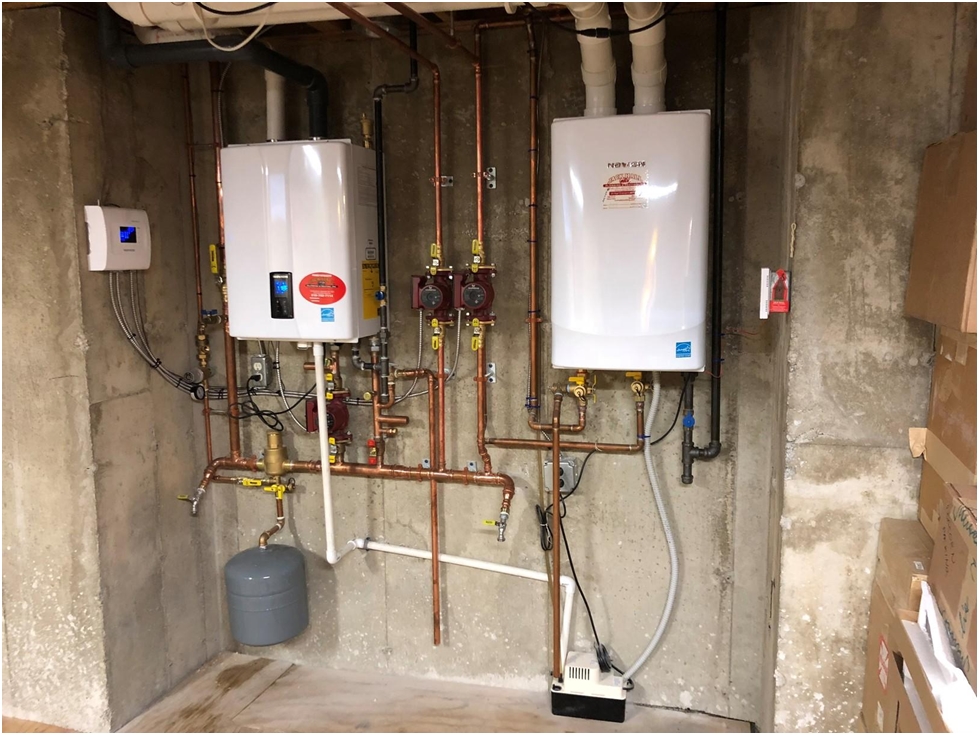*Discount applies to billable labor only. Work order must be less than $500.00 to be eligible.
Cannot be combined with other discounts or proposed signed contract projects.
*Discount applies to billable labor only. Work order must be less than $500.00 to be eligible.
Cannot be combined with other discounts or proposed signed contract projects.

Tired of sky-high heating costs? Slash Your Heating Bills and Boost Comfort with High-Efficiency Heating Systems in Essex County, Haverhill, Georgetown, North Andover, Boxford, Danvers, Groveland. In the Boston area, heating is a major expense, but you can significantly reduce those costs and enjoy a cozier home with a high-efficiency heating system. If your current system is over 20 years old, it’s likely guzzling energy and costing you a fortune. Upgrading to a new, efficient system can save you money, improve comfort, and reduce your environmental impact.
Understanding Heating Systems
Most Boxford, Danvers, North Andover homes rely on furnaces or boilers powered by natural gas or oil. Furnaces distribute heated air through ducts, while boilers circulate hot water through pipes to radiators or radiant floor systems.
Efficiency Matters: The AFUE Rating
A heating system’s efficiency is measured by its Annual Fuel Utilization Efficiency (AFUE) rating. An AFUE of 90% means that 90% of the fuel’s energy is converted into heat, while the remaining 10% is lost. Higher AFUE ratings translate to lower energy bills and reduced emissions.
While “boiler hog” isn’t a standard industry term, it likely refers to high-efficiency boiler systems that effectively utilize fuel to generate heat, minimizing waste and maximizing energy savings. These systems often incorporate advanced technologies like:
These features help ‘hog’ or maximize the heat output from the fuel source, leading to significant savings on energy bills and a reduced environmental impact, making you a financially savvy homeowner.
Types of Heating Systems
Now, let’s look at the different types of heating systems you mentioned:
When choosing a heating system, consider factors like:
Essex County’s #1 Choice
Save Money, Increase Comfort, and Go Green with a High-Efficiency Heating System
Did you know that a new high-efficiency heating system can drastically cut your energy bills in half? That’s because modern systems boast efficiency ratings as high as 95%, compared to older models that waste significant energy. Upgrading can also slash your annual carbon dioxide emissions by 1.5 tons with gas and 2.5 tons with oil (source: energy.gov).
Signs You Need a New Heating System:
Benefits of Upgrading:
Don’t Forget Rebates and Incentives!
Government https://www.energy.gov/ and utility companies offer various rebates and incentives to help homeowners upgrade to high-efficiency heating systems. Explore online resources and heat loan programs to maximize your savings.
Right-Sizing Your New System
A qualified heating contractor can assess your current system, evaluate your home’s heat loss, and calculate the appropriate capacity for a new system. This ensures you get the right size for optimal efficiency and comfort.
Understanding Heating Capacity (BTUs)
A system’s heating capacity is measured in British Thermal Units (BTUs). The higher the BTU rating, the more heat it can generate. A typical home uses tens of thousands of BTUs on a cold day.
Essex County’s #1 Choice